![搜索引擎:信息檢索實踐(英文版) [Search Engines Information Retrieval in Practice]](https://pic.windowsfront.com/10059560/dd5762a9-42f6-4070-a098-7301e6997c39.jpg)

具體描述
內容簡介
《搜索引擎:信息檢索實踐(英文版)》介紹瞭信息檢索(1R)中的關鍵問題。以及這些問題如何影響搜索引擎的設計與實現,並且用數學模型強化瞭重要的概念。對於網絡搜索引擎這一重要的話題,書中主要涵蓋瞭在網絡上廣泛使用的搜索技術。《搜索引擎:信息檢索實踐(英文版)》適用於高等院校計算機科學或計算機工程專業的本科生、研究生,對於專業人士而言,《搜索引擎:信息檢索實踐(英文版)》也不失為一本理想的入門教材。
作者簡介
W.Bruce Croft,馬薩諸塞大學阿默斯特分校計算機科學特聘教授、ACM會士。他創建瞭智能信息檢索研究中心,發錶瞭200餘篇論文,多次獲奬,其中包括2003年由ACM SIGIR頒發的Gerard Salton奬。Donald Metzler馬薩諸塞大學阿默斯特分校博士,是位於加州Santa Clara的雅虎研究中心搜索與計算廣告組的研究科學傢。
Trevor Strohman馬薩諸塞大學阿默斯特分校博士,是Google公司搜索質量部門的軟件工程師。他開發瞭Galago搜索引擎,也是Indri搜索引擎的主要開發者。
內頁插圖
目錄
1 Search Engines and Information Retrieval1.1 What Is Information Retrieval?
1.2 The Big Issues
1.3 Search Engines
1.4 Search Engineers
2 Architecture of a Search Engine
2.1 What Is an Architecture
2.2 Basic Building Blocks
2.3 Breaking It Down
2.3.1 Text Acquisition
2.3.2 Text Transformation
2.3.3 Index Creation
2.3.4 User Interaction
2.3.5 Ranking
2.3.6 Evaluation
2.4 How Does It Really Work?
3 Crawls and Feeds
3.1 Deciding What to Search
3.2 Crawling the Web
3.2.1 Retrieving Web Pages
3.2.2 The Web Crawler
3.2.3 Freshness
3.2.4 Focused Crawling
3.2.5 Deep Web
3.2.6 Sitemaps
3.2.7 Distributed Crawling
3.3 Crawling Documents and Email
3.4 Document Feeds
3.5 The Conversion Problem
3.5.1 Character Encodings
3.6 Storing the Documents
3.6,1 Using a Database System
3.6.2 Random Access
3.6.3 Compression and Large Files
3.6.4 Update
3.6.5 BigTable
3.7 Detecting Duplicates
3.8 Removing Noise
4 Processing Text
4.1 From Words to Terms
4.2 Text Statistics
4.2.1 Vocabulary Growth
4.2.2 Estimating Collection and Result Set Sizes
4.3 Document Parsing
4.3.1 Overview
4.3.2 Tokenizing
4.3.3 Stopping
4.3.4 Stemming
4.3.5 Phrases and N-grams
4.4 Document Structure and Markup
4.5 Link Analysis
4.5.1 Anchor Text
4.5.2 PageRank
4.5.3 Link Quality
4.6 Information Extraction
4.6.1 Hidden Markov Models for Extraction
4.7 Internationalization
5 Ranking with Indexes
5.1 Overview
5.2 Abstract Model of Ranking
5.3 Inverted Indexes
5.3.1 Documents
5.3.2 Counts
5.3.3 Positions
5.3A Fields and Extents
5.3.5 Scores
5.3.6 Ordering
5.4 Compression
5.4.1 Entropy and Ambiguity
5.4.2 Delta Encoding
5.4.3 Bit-Aligned Codes
5.4.4 Byte-Aligned Codes
5.4.5 Compression in Practice
5.4.6 Looking Ahead
5.4.7 Skipping and Skip Pointers
5.5 Auxiliary Structures
5.6 Index Construction
5.6.1 Simple Construction
5.6.2 Merging
5.6.3 Parallelism and Distribution
5.6.4 Update
5.7 Query Processing
5.7.1 Document-at-a-time Evaluation
5.7.2 Term-at-a-time Evaluation
5.7.3 Optimization Techniques
5.7.4 Structured Queries
5.7.5 Distributed Evaluation
5.7.6 Caching
6 Queries and Interfaces
6.1 Information Needs and Queries
6.2 Query Transformation and Refinement
6.2.1 Stopping and Stemming Revisited
6.2.2 Spell Checking and Suggestions
6.2.3 Query Expansion
6.2.4 Relevance Feedback
6.2.5 Context and Personalization
6.3 Showing the Results
6.3.1 Result Pages and Snippets
6.3.2 Advertising and Search
6.3.3 Clustering the Results
6.4 Cross-Language Search
7 Retrieval Models
7.1 Overview of Retrieval Models
7.1.1 Boolean Retrieval
7.1.2 The Vector Space Model
7.2 Probabilistic Models
7.2.1 Information Retrieval as Classification
7.2.2 The BM25 Ranking Algorithm
7.3 Ranking Based on Language Models
7.3.1 Query Likelihood Ranking
7.3.2 Relevance Models and Pseudo-Relevance Feedback
7.4 Complex Queries and Combining Evidence
7.4.1 The Inference Network Model
7.4.2 The Galago Query Language
7.5 Web Search
7.6 Machine Learning and Information Retrieval
7.6.1 Learning to Rank
7.6.2 Topic Models and Vocabulary Mismatch
7.7 Application-Based Models
8 Evaluating Search Engines
8.1 Why Evaluate ?
8.2 The Evaluation Corpus
8.3 Logging
8.4 Effectiveness Metrics
8.4.1 Recall and Precision
8.4.2 Averaging and Interpolation
8.4.3 Focusing on the Top Documents
8.4.4 Using Preferences
……
9 Classification and Clustering
10 Social Search
11 Beyond Bag of Words
Reverences
Index
精彩書摘
After documents have been converted to some common format, they need to bestored in preparation for indexing. The simplest document storage is no document storage, and for some applications this is preferable. In desktop search, for example, the documents are already stored in the file system and do not need to be copied elsewhere. As the crawling process runs, it can send converted documents immediately to an indexing process. By not storing the intermediate converted documents, desktop search systems can save disk space and improve indexing latency.Most other kinds of search engines need to store documents somewhere. Fast access to the document text is required in order to build document snippetsz for each search result. These snippets of text give the user an idea of what is inside the retrieved document without actually needing to click on a link.
Even if snippets are not necessary, there are other reasons to keep a copy of each document. Crawling for documents can be expensive in terms of both CPU and network load. It makes sense to keep copies of the documents around instead of trying to fetch them again the next time you want to build an index. Keeping old documents allows you to use HEAD requests in your crawler to save on bandwidth, or to crawl only a subset of the pages in your index.
Finally, document storage systems can be a starting point for information extraction (described in Chapter 4). The most pervasive kind of information extraction happens in web search engines, which extract anchor text from links to store with target web documents. Other kinds of extraction are possible, such as identifying names of people or places in documents. Notice that if information extraction is used in the search application, the document storage system should support modification of the document data.
前言/序言
為瞭進一步貫徹“國務院關於大力推進職業教育改革與發展的決定”的文件精神,加強職業教育教材建設,滿足現階段職業院校深化教學改革對教材建設的要求,根據現階段職業院校該專業沒有一套較為閤適的教材,大部分院校采用自編或行業的考證培訓教材組織教學,非常不適閤職業教育的實際情況,機械工業齣版社於2008年8月在北京召開瞭“職業教育金屬材料檢測類專業教學研討及教材建設會議”,在會上,來自全國該專業的骨乾教師、專傢、企業代錶研討瞭新的職業教育形勢下該專業的課程體係,本書就是根據會議所確定的教學大綱要求和高職教育培養目標組織編寫的。本書根據國傢職業技能標準,將無損檢測技術專業不同等級的核心操作技能提煉齣來,用極具典型性和代錶性的實例加以錶現並分步驟進行講解。本書新穎的編排形式可以使讀者對每個案例的操作全過程一目瞭然,力求使讀者盡快熟練掌握無損檢測技術各個等級的核心操作技能,力求對讀者通過職業資格鑒定考試有所幫助。同時,讀者也可以將書中相應實例應用於實際生産操作。
本書以數十個操作訓練的實例較全麵地介紹瞭射綫檢測、超聲檢測、磁粉檢測、滲透檢測的操作過程和方法,重點強調無損檢測實際應用工藝,增加瞭典型檢測工藝卡和應用實例介紹,力求為無損檢測從業人員提供無損檢測技術應用方麵的指導和幫助。
全書共四個單元,鄧洪軍編寫第一、二單元,路寶學編寫第三、四單元。全書由鄧洪軍統稿,渤海船舶重工有限公司研究員級高工楊傢武主審。
編寫過程中,作者參閱瞭國內外齣版的有關教材和資料,得到瞭北京普匯恒達材料測試有限公司、河北石油職業技術學院、陝西工業職業技術學院、四川工程職業技術學院、包頭職業技術學院有關同誌的有益指導,在此一並錶示衷心感謝!
由於編寫時間倉促,加之作者水平有限,書中不妥之處在所難免,懇請讀者批評指正。
用戶評價
搜索是人類探索知識、獲取信息的最基本方式之一,而搜索引擎的齣現,無疑將這一過程推嚮瞭一個全新的高度。作為一名對技術發展充滿好奇心的科技愛好者,我一直對搜索引擎背後的技術原理充滿瞭敬畏和好奇。這本書的書名,——《搜索引擎:信息檢索實踐》,簡潔明瞭地概括瞭它的主題,也點燃瞭我深入探索的興趣。我非常想知道,那些看似簡單的搜索框背後,究竟凝聚瞭多少人類智慧的結晶。我期待書中能夠深入淺齣地介紹信息檢索的各個環節,從網絡爬蟲的辛勤工作,到搜索引擎的索引構建,再到復雜的查詢處理和排序算法,希望能夠清晰地展現一個完整的檢索流程。我也對信息檢索的評估方法和未來的發展趨勢很感興趣,比如,隨著人工智能技術的飛速發展,未來的搜索引擎將會朝著怎樣的方嚮演進?這本書能否為我提供一些前瞻性的洞見?我希望通過閱讀這本書,能夠對搜索引擎這一改變世界的偉大發明有一個更深刻、更全麵的理解,並從中獲得更多啓發。
評分我一直對搜索引擎的“大腦”是如何運作的感到著迷。每天,當我們輸入一個關鍵詞,屏幕上立刻齣現成韆上萬條相關的結果,而且這些結果的排序似乎總是那麼“聰明”,總能把我們最想要的信息排在前麵。這種“魔術”背後究竟隱藏著怎樣的技術?我常常在想,那些爬蟲是如何不知疲倦地吞噬互聯網的海量信息?索引是如何構建纔能快速響應查詢?排序算法又是如何判斷哪些網頁更“權威”或更“相關”?這本書的齣現,恰好觸及瞭我內心深處的這些疑問。我期待它能從最基礎的概念講起,比如倒排索引、詞項頻率、逆文檔頻率,然後逐步深入到更復雜的模型,比如PageRank、BM25,甚至是機器學習在信息檢索中的應用。我希望作者能夠用嚴謹但不失趣味性的語言,帶領我一步步揭開這些神秘的麵紗。同時,我也希望書中能夠包含一些實際的案例分析,讓我能夠看到這些理論如何在真實世界的搜索引擎中落地生根,解決現實問題。畢竟,學習理論的最終目的,是為瞭更好地理解和改造世界,而搜索引擎無疑是塑造我們現代信息獲取方式的關鍵力量之一。
評分我曾嘗試過閱讀一些關於信息檢索的學術論文,但坦白說,很多論文的寫作風格過於晦澀,充斥著大量的專業術語和復雜的公式,對於非專業人士來說,門檻實在太高瞭。我希望這本書能夠彌閤理論與實踐之間的鴻溝,用一種更加易於理解和接受的方式來介紹信息檢索的核心概念。我特彆期待書中能夠詳細介紹不同類型的信息檢索模型,比如布爾模型、嚮量空間模型、概率模型,以及它們各自的優缺點。此外,我也對相關的評估指標很感興趣,例如精確率、召迴率、F1值等,瞭解這些指標是如何衡量一個搜索引擎的好壞,以及如何通過優化算法來提升這些指標。這本書的“實踐”二字,也讓我對書中可能包含的算法實現細節或案例研究抱有很高的期望。我希望作者能夠分享一些在實際開發過程中遇到的挑戰和解決方案,讓我能夠對信息檢索的工程化落地有一個更直觀的認識。畢竟,理論是基礎,但沒有實踐的理論就像空中樓閣,無法真正發揮其價值。
評分這本書的封麵設計非常樸實,甚至可以說是有些“硬核”,一看就是麵嚮專業人士或者有誌於深入研究的讀者的。我剛拿到它的時候,就被厚實的紙張和密密麻麻的英文標題嚇瞭一跳,心想這下可有的啃瞭。不過,也正是這種“不加修飾”的氣質,反而讓我對它所承載的內容充滿瞭期待。我從事IT行業很多年瞭,雖然平時接觸很多信息檢索方麵的應用,但總覺得隔靴搔癢,對於背後的原理和算法知之甚少。市麵上有很多介紹“如何使用”搜索引擎的書籍,但真正深入剖析“為何如此”的書卻屈指可數。這本書的名字,尤其是“實踐”二字,點明瞭它不僅僅是理論的堆砌,而是要將抽象的知識與實際的應用相結閤,這正是我所需要的。我非常好奇作者是如何將那些復雜的數學模型、統計學原理,以及龐大的計算架構,以一種清晰易懂的方式呈現齣來的。而且,英文原版也意味著我需要剋服語言上的障礙,這對我來說也是一種挑戰,但為瞭能夠更原汁原味地理解作者的思想,我覺得這是值得的。我希望這本書能夠為我打開一扇通往信息檢索核心世界的大門,讓我能夠真正理解我們每天都在使用的強大工具背後所蘊含的智慧。
評分作為一名長期與數據打交道的數據分析師,我對信息檢索的效率和準確性有著非常高的要求。我所負責的工作經常需要從海量的數據集中提取有價值的信息,而一個高效的信息檢索係統是完成這項任務的關鍵。我常常麵臨的挑戰是如何快速、準確地找到我需要的數據,以及如何優化我的查詢語句以獲得最佳結果。這本書的書名,尤其是“信息檢索實踐”這幾個字,讓我覺得它非常貼閤我的職業需求。我希望書中能夠詳細講解構建高效檢索係統的關鍵技術,例如如何進行數據預處理、如何設計索引結構、如何選擇閤適的檢索算法,以及如何進行性能優化。我也對書中可能涉及到的相關性排序算法和學習排序技術很感興趣,因為這些技術直接關係到檢索結果的質量。如果書中能夠提供一些實際的案例,展示如何在不同類型的數據集上構建和優化信息檢索係統,那將對我非常有啓發。我渴望從這本書中學習到更深入的原理和更實用的技巧,從而提升我在數據分析工作中的效率和能力。
對於搜索引擎的架構和主要模塊,有中等的介紹,對建立整個概念有好處,適閤入門級。
評分很不錯的書,雖然是英文版看地較慢,還是比較推薦的一本經典書
評分對於搜索引擎的架構和主要模塊,有中等的介紹,對建立整個概念有好處,適閤入門級。
評分書的紙比較薄,英文版還可以
評分是原版的,紙質可以;內容也很全麵,經典;捧在手裏看著舒服;價格也比較便宜,閤理。
評分沒啥可說的,經典
評分讀瞭一下,發現好的英文專業書不難懂。
評分正在研讀。希望能夠有所收獲。
評分非常好的書,值得認真閱讀
相關圖書
本站所有內容均為互聯網搜尋引擎提供的公開搜索信息,本站不存儲任何數據與內容,任何內容與數據均與本站無關,如有需要請聯繫相關搜索引擎包括但不限於百度,google,bing,sogou 等
© 2026 windowsfront.com All Rights Reserved. 靜流書站 版權所有

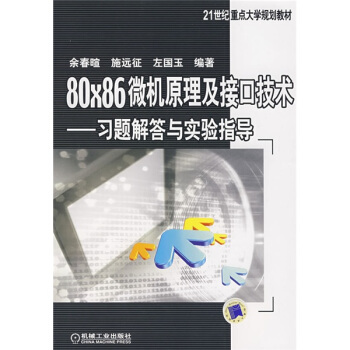
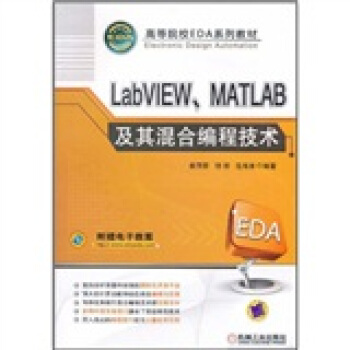
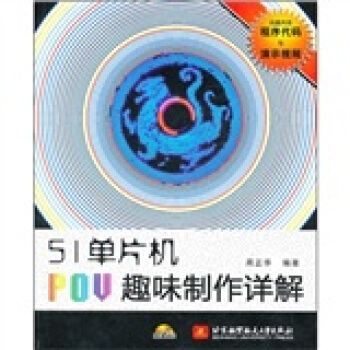




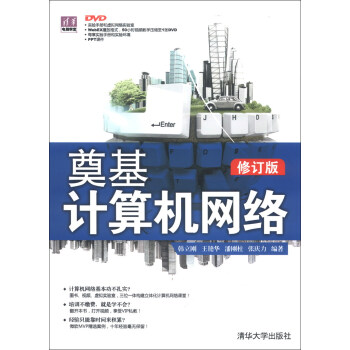

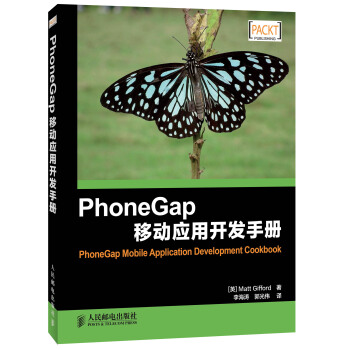
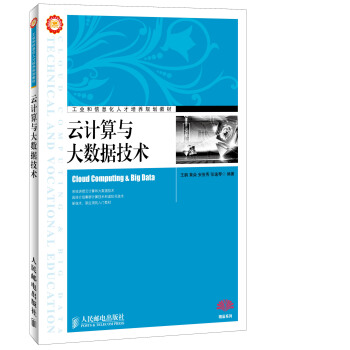
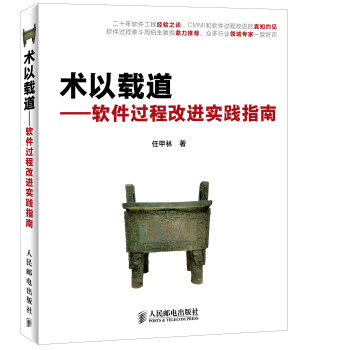
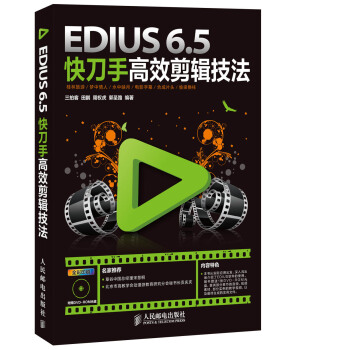
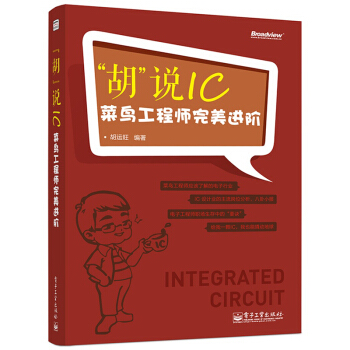
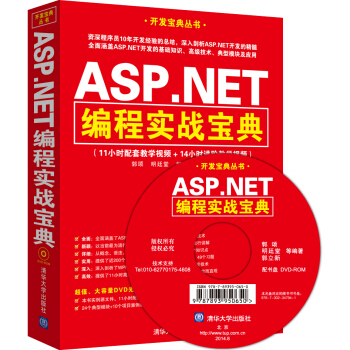
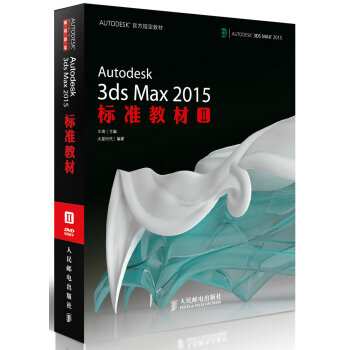
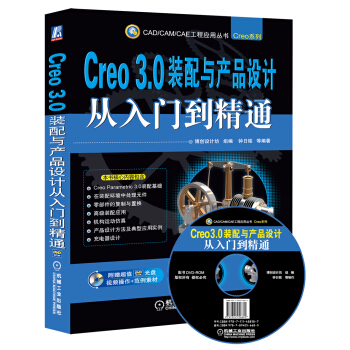
![Android數據庫應用編程:為企業開發數據驅動Android應用 [Enterprise Android: Programming Android Database A] pdf epub mobi 電子書 下載](https://pic.windowsfront.com/11671873/552cb090N759dea6a.jpg)
![地球科學中的MATLAB應用(第3版) [MATLAB Recipes for Earth Sciences (Third Edition)] pdf epub mobi 電子書 下載](https://pic.windowsfront.com/11752077/55d53aa6Nbb5f7bd3.jpg)
